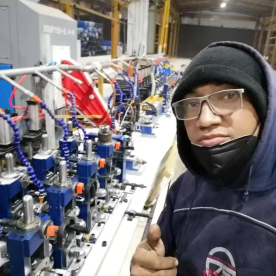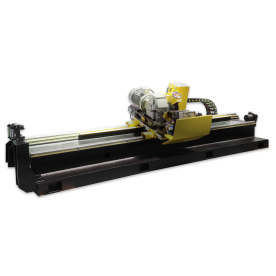[Precision Impedor for Circuits]Understanding Precision Impedors for Circuits: Key Applications, Benefits, and Best Practices for Engineers and Designers
News 2024-8-28

Understanding Precision Impedors for Circuits: Key Applications, Benefits, and Best Practices for Engineers and Designers
What is a Precision Impedor?
A precision impedor is a resistor with highly stable, defined characteristics tailored to specific circuit requirements. Unlike standard resistors, which may exhibit wider tolerances and variability, precision impedors are manufactured to provide minimal deviation from their nominal values, ensuring that circuit designers and engineers can depend on them for precise impedance matching. These devices can be utilized in various applications, including signal integrity analysis, audio technology, and impedance testing in RF circuits.
How Precision Impedors Work
Precision impedors are often constructed from advanced materials that ensure consistent temperature coefficients and low noise levels. In many cases, they incorporate a feedback mechanism to maintain stability in diverse operating conditions. The critical aspect of these impedors is their ability to minimize errors introduced by temperature variations and manufacturing inconsistencies, which are common challenges in circuit design.
Precision impedors are characterized by their high accuracy, usually within 0.01 to 0.1% tolerance, making them indispensable in applications where even the slightest deviation can lead to performance issues. They can be designed as passive components or as part of active circuit elements, enhancing their versatility.
Key Applications of Precision Impedors
1. **Test and Measurement:** Precision impedors are essential for accurate measurements in laboratory settings. They ensure that impedance is measured correctly, providing engineers with reliable data to analyze circuit performance. This application is crucial for industries that require stringent quality control, such as aerospace and telecommunications.
2. **Signal Integrity:** In high-speed digital circuits, maintaining signal integrity is paramount. Precision impedors help achieve impedance matching, reducing reflections and signal degradation. This application is critical in ensuring reliable data transmission, especially in modern communication technologies.

Understanding Precision Impedors for Circuits: Key Applications, Benefits, and Best Practices for Engineers and Designers
4. **RF and Microwave Circuits:** In RF applications, precision impedors are employed to maintain control over signal integrity at high frequencies. Their ability to provide consistent impedance values is vital for the performance of antennas and other microwave components.
Benefits of Using Precision Impedors
The adoption of precision impedors offers several advantages:
1. **Accuracy:** The foremost benefit of precision impedors lies in their unmatched accuracy. Engineers can trust their measurements, enabling reliable performance predictions for circuits.
2. **Stability:** These impedors offer exceptional stability over a range of temperatures and environmental conditions, ensuring consistent performance throughout the product’s lifecycle.

Understanding Precision Impedors for Circuits: Key Applications, Benefits, and Best Practices for Engineers and Designers
4. **Versatility:** With various configurations available, precision impedors can be tailored for different applications, making them suitable for a wide range of circuits.
Best Practices for Using Precision Impedors
To maximize the benefits of precision impedors, engineers should adhere to certain best practices:
1. **Understand the Specifications:** Before selecting an impedor, it’s essential to understand its specifications, including tolerance, temperature coefficient, and maximum operating power. This knowledge empowers engineers to select the appropriate devices for their designs.
2. **Proper Mounting:** How an impedor is mounted can affect its performance. Moreover, strong thermal management is crucial to maintaining its precision. Therefore, implementing best practices in soldering and circuit board design will help retain the integrity of the measurement.
3. **Regular Calibration:** Even precision impedors can drift over time. Regular calibration ensures that measurements remain accurate and reliable. Engineers should establish a calibration schedule as part of their quality control process.
4. **Utilize Appropriate Measurement Equipment:** To fully benefit from precision impedors, high-quality measurement equipment must be used. This helps enhance the accuracy and reliability of impedances measured within the circuits.
In conclusion, precision impedors are indispensable tools for engineers and designers working with circuits requiring accurate impedance evaluation. Their applications span various fields, including test and measurement, signal integrity, and RF technology. By adhering to best practices and leveraging the benefits of precision impedors, professionals can ensure optimal circuit performance and reliability.
